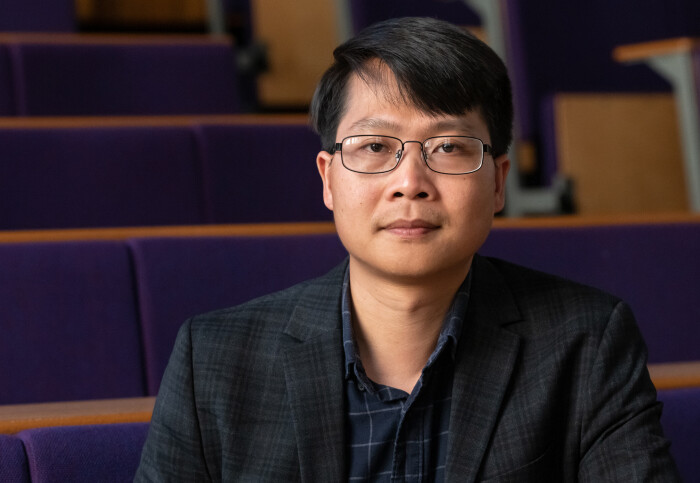Materials scientist receives TMS Young Innovator Award 2024

Dr Minh-Son Pham, Department of Materials, has received the TMS 2024 Young Innovator in the Materials Science of Additive Manufacturing Award.
The 2024 Young Innovator in the Materials Science of Additive Manufacturing Award is given to one individual annually by the Minerals, Metals & Materials Society. The award recognises an outstanding, early-career individual who is performing innovative research in the area of the materials science of additive manufacturing.
Being recognised by this TMS award is my great honour. Dr Pham, Senior Lecturer in Engineering Alloys
To celebrate the award, Dr Pham has been invited to a keynote lecture on Monday 4 March at the TMS Annual Meeting in Orlando, USA. The annual meeting usually attracts more than 4,000 participants.
Dr Pham commented: “TMS is a professional society for many brilliant researchers in materials science and engineering. Being recognised by this TMS award is my great honour.
This award is a credit to excellent works in the field of materials science and additive manufacturing I have had with current and former PhD students and academic and industrial partners.”
Find out more about the Additive Manufacturing Keynote Session 2024.
Research Spotlight
Dr Pham's research group focuses on alloy design, mechanical metamaterials, additive manufacturing, and mechanical integrity of metallic alloys.
In their latest research, his team has uncovered new ways to program the strength of materials. Their investigation found a new programmable ability that introduced a strengthening effect to crystals within lattice structures.
This breakthrough paves the way for enhancing the adaptivity of materials, enabling them to adapt to stress levesl and automatically strengthen themselves in predetermined ways when subjected to heavier loads.
Article text (excluding photos or graphics) © Imperial College London.
Photos and graphics subject to third party copyright used with permission or © Imperial College London.
Reporter
Kayleigh Brewer
Department of Materials